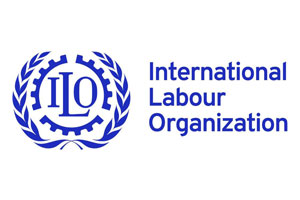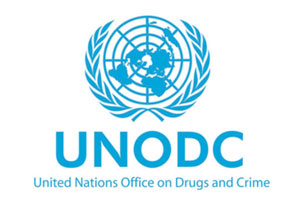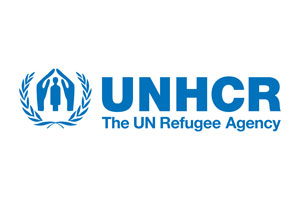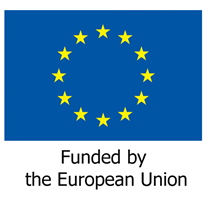
ILO
ILO is a United Nations agency whose mandate is to advance social and economic justice through setting international labour standards. Founded in October 1919 under the League of Nations, it is the first and oldest specialised agency of the UN. ILO promotes workers’ rights, encourage decent employment opportunities, enhance social protection and strengthen dialogue on work-related issues. The ILO prides itself of its unique tripartite structure which gives an equal voice to workers, employers and governments to ensure that the views of the social partners are closely reflected in labour standards and in shaping policies and programmes. ILO does this by bringing together governments, employers and workers of 187 member states to set labour standards, develop policies and devise programmes promoting decent work for all women and men

OIM
IOM is the leading intergovernmental organization in the field of migration and works closely with governmental, intergovernmental and non-governmental partners. With 174 member states, a further 8 states holding observer status and offices in over 100 countries, IOM is dedicated to promoting humane and orderly migration for the benefit of all. It does so by providing services and advice to governments and migrants. IOM works to help ensure the orderly and humane management of migration to promote international cooperation on migration issues, to assist in the search for practical solutions to migration problems and to provide humanitarian assistance to migrants in need, including refugees and internally displaced people. The IOM Constitution recognizes the link between migration and economic, social and cultural development, as well as to the right of freedom of movement. IOM works in the four broad areas of migration management:
- Migration and development
- Facilitating migration
- Regulating migration
- Forced migration.
IOM activities that cut across these areas include the promotion of international migration law, policy debate and guidance, protection of migrants’ rights, migration health and the gender dimension of migration.

UNODC
The mission of the United Nations Office on Drugs and Crime (UNODC) is to contribute to global peace and security, human rights and development by making the world safer from drugs, crime, corruption and terrorism by working for and with Member States to promote justice and the rule of law and build resilient societies. Under the context of migration, UNODC is the guardian of the United Nations Convention against Transnational Organized Crime. Thus, supporting member states to be better equipped to prevent migrant trafficking and smuggling, to prosecute the perpetrators and assist the migrants. To ensure that the states provide protection and assistance to victims of human trafficking and smuggled migrants and ensure that their rights are fully respected. UNODC also supports RECs and Member states in undertaking transnational investigations into trafficking and smuggling rings and in the subsequent prosecution, tracing and seizure of the illicit proceeds of these crimes. UNODC works on these in the following four themes:
- Policy and normative support: By providing support to RECs and member states in the ratification and implementation of the legal instruments
- Analysis, research and evidence: By strengthening Member States’ and RECs data, analyses, research and statistics to generate evidence-base for legislative, policy and operational responses
- Technical Assistance: By building capacities and expertise and Regional and national level to address transational organized crime and in specific trafficking in persons, smuggling of migrants and border management.
- Protection of vulnerable groups and building capacities of communities to act as a deterrent to human trafficking and migrant smuggling

UNHCR
UNHCR commonly known as the “UN refugee agency”, was established by United Nations’ General Assembly Resolution 319 A (IV) and began operations on 1 January 1951. The Statute of the Office is contained in General Assembly Resolution 428 (v) of December 1950. Initially established as a temporary office, with a projected life span of three years, UNHCR’s mandate has since then been extended every five years to respond to the world’s growing refugee problems. UNHCR’s mandate is to ensure that international protection is provided to refugees and durable solutions are found to ease their plight. The 1951 Convention relating to the Status of Refugees defines a refugee as a “person who, owing to well-founded fear of being persecuted for reasons of race, religion, nationality, membership of a particular social group or political opinion, is outside the country of his nationality and is unable or, owing to such fear, is unwilling to avail himself of the protection of that country.” In addition to the 1951 Convention and its 1967 Protocol, the 1969 Convention governing the specific aspects of refugee problems applied in Africa and the 1984 Cartagena Declaration, which is relevant to Central America, adapt the 1951 definition of a refugee, to circumstances in those regions. Over the years, there have been several General Assembly resolutions, which have requested UNHCR to provide international protection and humanitarian assistance to persons who are outside their country of origin because of persecution, armed conflict, generalised violence, foreign aggression or other circumstances leading to flight, especially when host governments are unable to do so. UNHCR’s involvement has also been requested with respect to internally displaced persons who have been obliged to flee their homes for similar reasons but remain within their country’s borders In Southern Africa, UNHCR has worked to promote the rights of asylum seekers and refugees, coordinate assistance, and seek solutions for them. To that end, UNHCR has reinforced the technical capacity of 13 over the 16 States in the region to conduct the refugee status determination (RSD). UNHCR can conduct the status determination under its mandate, in particular situations. One recent activity relating to support to States with RSD is for the UNHCR Regional Bureau to recently organised a stocktaking workshop to review the stances of the backlogs of asylum applications in the region and the means to address them. Also, the regional conference organised with Southern Africa Development Community (SADC) Secretariat to implement pledges made by some countries to improve the asylum systems. Both meetings produced work plans.
 Português
Português
